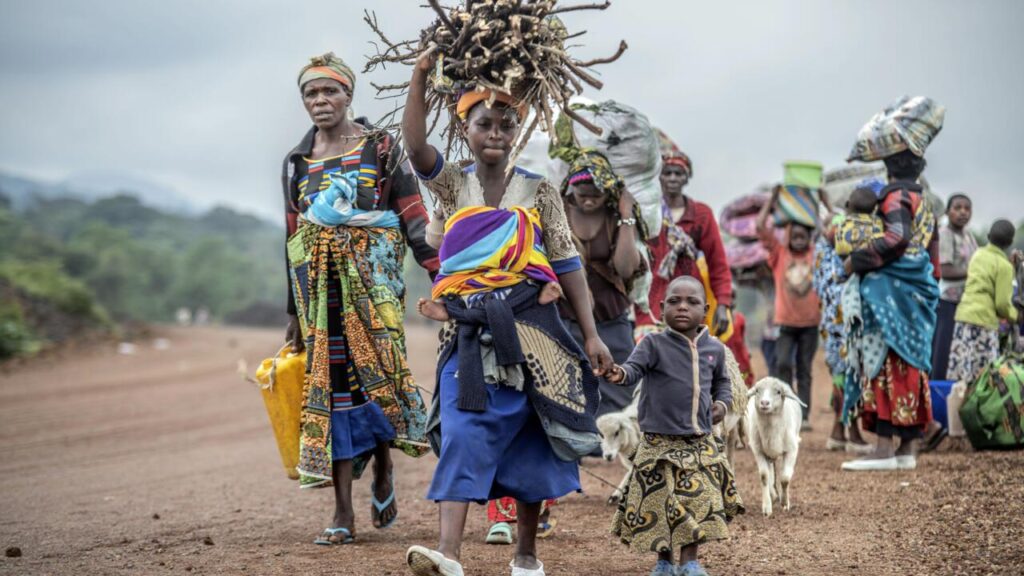DR Congo’s Public Health Emergency: WHO Sounds the Alarm on a Growing Humanitarian Catastrophe
Amidst the vast landscapes of Central Africa, the Democratic Republic of the Congo (DRC) is confronting an escalating public health emergency that threatens millions. The World Health Organization (WHO) has characterized this unfolding crisis as a “nightmare,” driven by rampant outbreaks of preventable illnesses, persistent violence, and mass displacement. This analysis explores the deteriorating health conditions in the DRC, highlights obstacles faced by healthcare providers, and stresses the urgent necessity for global intervention to prevent a disaster with far-reaching regional consequences.
Fragile Healthcare System in DRC Amplifies Public Health Vulnerabilities
The Democratic Republic of Congo’s healthcare infrastructure is severely compromised, intensifying existing public health threats. Years of conflict combined with entrenched poverty have left medical facilities scarce and often ill-prepared to meet basic needs. Many clinics lack essential equipment and trained personnel, making it difficult to manage surges in infectious diseases such as cholera and measles or address widespread malnutrition aggravated by poor sanitation.
Recent data underscores this dire situation:
| Health Metric | Current Figures | Consequences |
|---|---|---|
| Under-5 Mortality Rate | Approximately 98 deaths per 1,000 live births (2023) | Indicative of severe malnutrition and disease burden |
| Physician Density | 1 doctor per 5,200 inhabitants | Lack of adequate medical care access across rural areas |
| Immunization Coverage (DPT3) | Around 47% | Persistent vulnerability to vaccine-preventable diseases outbreaks |
The country’s susceptibility to natural calamities further compounds these challenges. Epidemics like Ebola continue to flare unpredictably; for instance, recent outbreaks in eastern provinces have resulted in hundreds of cases with high fatality rates. The WHO emphasizes that without swift international aid focusing not only on emergency response but also long-term capacity building—including nutrition programs and community education—the health system risks total collapse.
Global Solidarity Needed: Strategies to Alleviate DR Congo’s Healthcare Collapse
The severity of DR Congo’s healthcare predicament demands immediate worldwide attention. Millions endure preventable illnesses due largely to shortages in medicines, insufficient trained staff, and crumbling infrastructure—issues worsened by ongoing armed conflicts displacing communities from their homes.
Key challenges include:
- Acutely Malnourished Children: Over 5 million children under five are projected to suffer from severe acute malnutrition throughout 2024.
- Epidemic Outbreaks: Recurring waves of cholera and measles continue ravaging vulnerable populations.
- Lack of Basic Medical Access: Less than half the population can reach essential healthcare services within reasonable distance.
To reverse these trends effectively requires coordinated international action focused on:
| Tactical Intervention | Main Goal Action | Objective Failure to mobilize resources promptly risks exacerbating mortality rates while destabilizing neighboring countries through refugee flows and cross-border disease transmission. Conversely, sustained commitment from governments alongside NGOs can help rebuild resilient systems capable not only of managing current emergencies but also mitigating future shocks. Addressing Multiple Epidemics: A Holistic Approach Recommended by WHO ExpertsAs epidemics converge across various regions within DR Congo—ranging from cholera hotspots along river basins to Ebola flare-ups near conflict zones—the complexity demands integrated solutions rather than isolated interventions. WHO advocates a multi-pronged strategy encompassing:
Recent epidemiological data illustrates ongoing threats:
|
|---|
